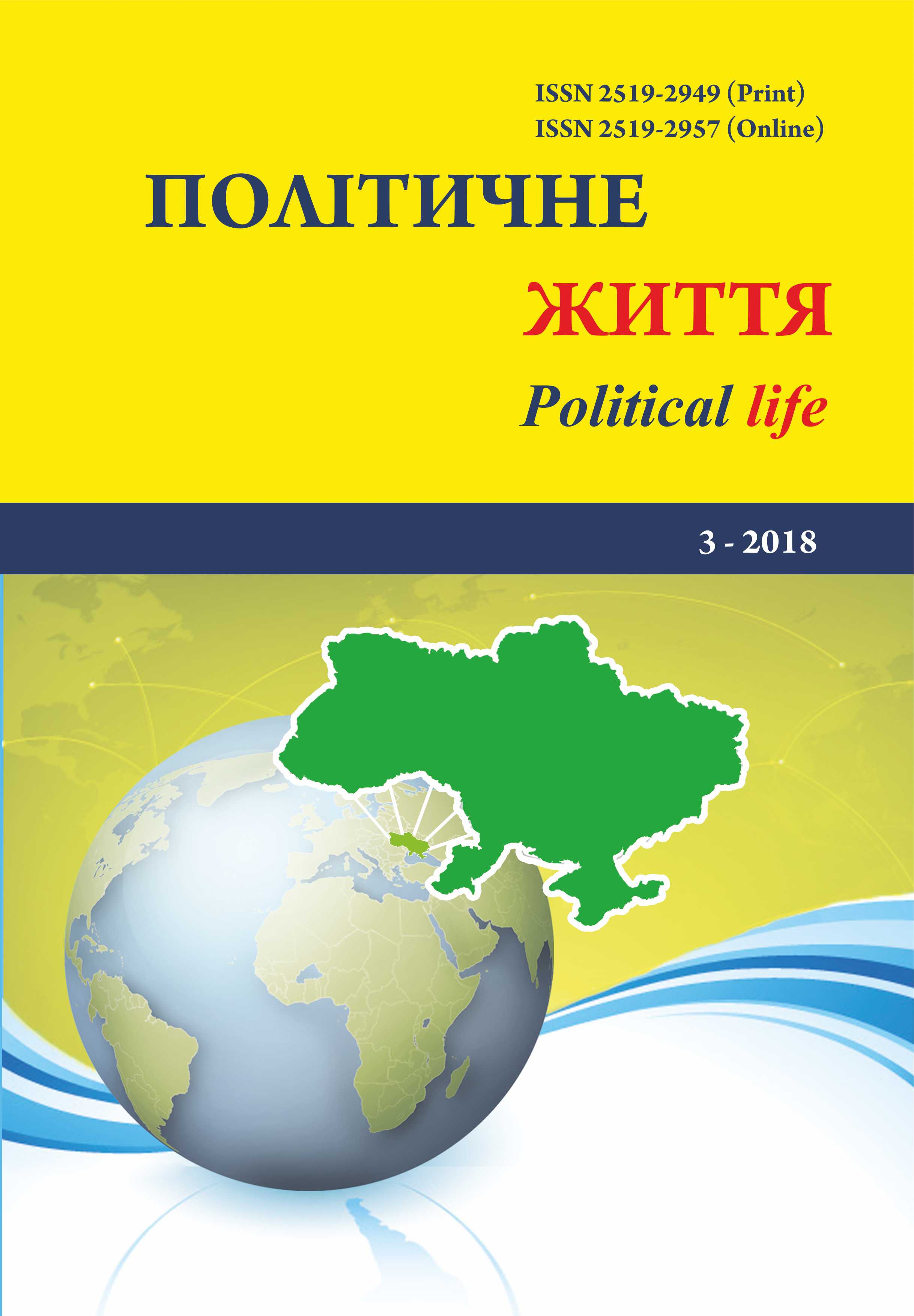Political-ideological spectrum of Ukrainian political parties at the present stage.
DOI:
https://doi.org/10.31558/2519-2949.2018.3.11Keywords:
political party, ideological tendencies, ideological "hybridization", "party of power", "leader party", ideology as "good"Abstract
The development of the Ukrainian party system and its ideological component can not be considered in isolation from the specifics of the transformational processes in Ukrainian society, which largely determined the nature and principle of the functioning of the political system and the state mechanism, as well as world trends.
Factors such as the war on the Donbas, the need to reform all spheres of society's life (often through its opposition), advancement through European integration, which necessitates the adaptation of Ukrainian realities to modern European norms, will, for a long time, determine the framework conditions for the development of the party system and parties as key subjects of socio-political processes and will have an unconditional influence on the formation of ideological foundations of certain political actors. It should also be noted that, since the process of determining the basic parameters of the functioning of the party system is far from complete, as well as the process of developing party ideologies, it is obvious that it is in the early stages of its development.
The definition of the ideological spectrum inherent in contemporary political parties, theoretically, taking into account the traditional definition of the term "political party", makes it possible to recreate the socio-political and transformational development of the state in an instantaneous time perspective.
At the same time, the gradual opening of the country means the penetration of trends typical of the modern West of the political life. Among these trends – for example, the departure of mass parties in favor of the so-called which leads to the transformation of parties into powerful machines for receiving electronic support from society, the gradual convergence of classical ideologies, the departure of the ideological component of campaigns and political activity in the second plan.
In recent decades it has come to the conclusion about crises as traditional, classical ideologies (such as conservation, liberalism, social democracy, nationalism) so that in developing countries in the best countries of the world (in particular, the USA, EU countries, NATO, the Organization economic cooperation and development) and the so-called neo-ideologies (neo-liberalism, neo-conservatism, etc.).
So, it is primarily about narrowing, and in some cases, the actual disappearance of ideological differences between key political actors (first and foremost, parties). Obviously, it was the narrowing of ideological differences that made it possible, in particular, to have rather strong positions of the socalled A "broad coalition" in Germany (between the CDU / CSU party bloc traditionally defending Christian-democratic, right-centered and liberal approaches, and the Social-Democrats historically belonging to the center-left spectrum).
In this context, it's worth mentioning the phenomenon of the so-called. "Comprehensive", or "universal" party (in Y. Shvedi – a party of voters, or a party for all (the general party)). Such parties are trying to focus on the most common at this moment in the public sentiment in order to first receive as many votes as possible in the elections, and then decide on the main lines of their policies.
References
Примуш М. Політологічний аналіз націоналістичної риторики політичних партій України // Історичні і політичні дослідження. – 2013. – №2. – С.293.
Шведа Ю. Теорія політичних партій та партійних систем. – Львів, 2004. – С. 314.
Шведа Ю. Теорія політичних партій… – С. 376
Вільсон Є., Якушик В. Політичні організації в Україні // Сучасність. – 1992. – №5. – С.164.
Шведа Ю. Теорія політичних партій… – С. 334.
Коночук С., Ярош С. Партійна система України: ідеологічний вимір. – К., 2010. – С. 368.
Шведа Ю. Теорія політичних партій… – С. 368.
Шведа Ю. Теорія політичних партій… – С. 380.
Руснак Б. Особливості проведення позачергових виборів народних депутатів 26 жовтня 2014 р. [Електронний ресурс] // Буковинський вісник державної служби та місцевого самоврядування. – Режим доступу: http://buk-visnyk.cv.ua/naukova-dumka/329.
Перспективи розвитку політичних партій: зміст суспільного запиту // Національна безпека і оборона. – 2015. – №6-7. – С. 34.
Дмитренко М. Ідеологія та її вплив на суспільство // Трибуна. – 2005. – №11-12. – С.12-14.

